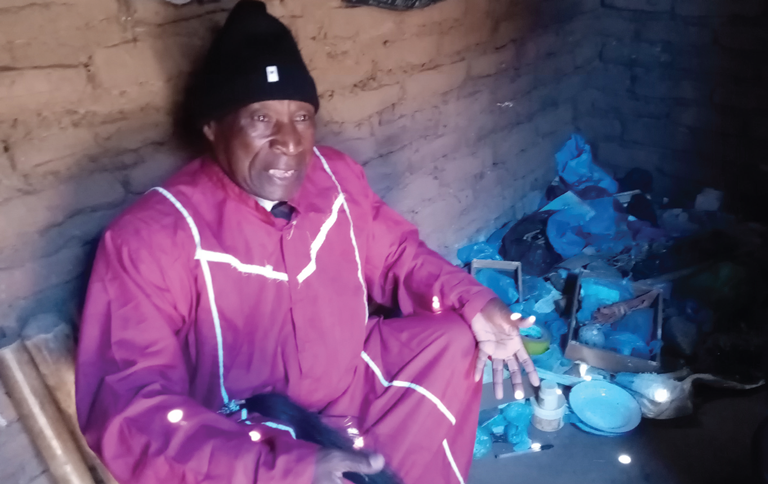Superstition slows TB treatment
Some tuberculosis (TB)patients delay to get treatment because they blame it on witchcraft.
Nancy Mbale, a floor attendant at Chitimba Health Centre in Rumphi, blames the delay to seek medical attention for her near-death condition.

“When I was taken ill with TB in 2019, my relatives took me from one herbalist to another. As we changed concoctions, my condition kept worsening,” she says.
The trips put her life at risk and drained her savings.
“While working at Chitimba, I started experiencing headaches, chest pains, fever, general body pains, sweating at night, dizziness and coughs. This proved costly,” Mbale narrates.
She was diagnosed with TB after a community health worker advised her to go for TB screening at Rumphi District Hospital.
Mbale recovered after a six-month dosage.
“I will never consult herbalists again or refer anyone to them,” she vows.
Edwin Mbale says his sister, Nancy, would have died without medical help.
“Had the family known, they wouldn’t have wasted time and money visiting witchdoctors. TB is curable if one seeks medical assistance on time and sticks to treatment,” he recounts.
In Karonga District, Menard Mwanjabala says changing herbalists reduced him to “a dead man walking”.
“I was just waiting for burial,” recalls the man diagnosed with TB in October 2020. “But here I am—very healthy—because I followed medical advice.”
The survivor is now TB ambassador. Together with other volunteers, he sensitises people in and beyond his community to TB signs and symptoms, trace TB suspects and collect their sputum for screening. He also supports those found positive to stick to medication.
Still, Mwanjabala is concerned about cultural beliefs that delay TB treatment.
“Instead of getting proper treatment, TB suspects who consult witchdoctors waste time getting useless concoctions and hating innocent people,” he explains.
Moffat Msokwa, assistant TB officer at Karonga District Hospital, says: “Last year, we lost five TB patients and their history shows they first went to herbalists.
“By the time they came to the hospital, their condition had worsened.”
He credits the volunteers with increased access to correct information about the disease, including the importance of seeking medical treatment on time.
Edwin Msiska, TB officer in Rumphi, says the district health office engages herbalists to always refer TB suspects to medics.
He explains: “Herbalists do not treat TB. They do not have treatment for TB. Those who administer concoctions only put patients’ lives at risk.
“When patients delay to start TB treatment, their immunity dwindles and the disease becomes hard to treat.”
The enhanced ties with volunteers and herbalists have helped health workers detect 143 of the targeted 179 cases from 54 sputum collection points.
Chisusu Mbale, former leader of Rumphi Traditional Healers Union, says: “No witchdoctor has TB cure. For herbalists to give TB treatment is as good as killing the patient. It delays the patient from seeking medical treatment.
“All the people I suspect to have TB are found with TB when they seek medical help, but I don’t treat people here because I have no TB cure,” he says.
The herbalist, now group village head Jeyeka Mbale, also uses public meetings, including funerals to senstise people to the importance of TB screening.”
In 2015, Malawi committed to reduce TB cases by 75 percent and deaths by 95 percent come 2030.
However, the count of TB cases had fallen from 18 000 in 2015 to 15 000 in 2020. About 88 percent of the cases were cured and eight percent died. n
Herbalist Chisusu Mbale urges traditional healers in Rumphi to refer TB suspects to health facilities




